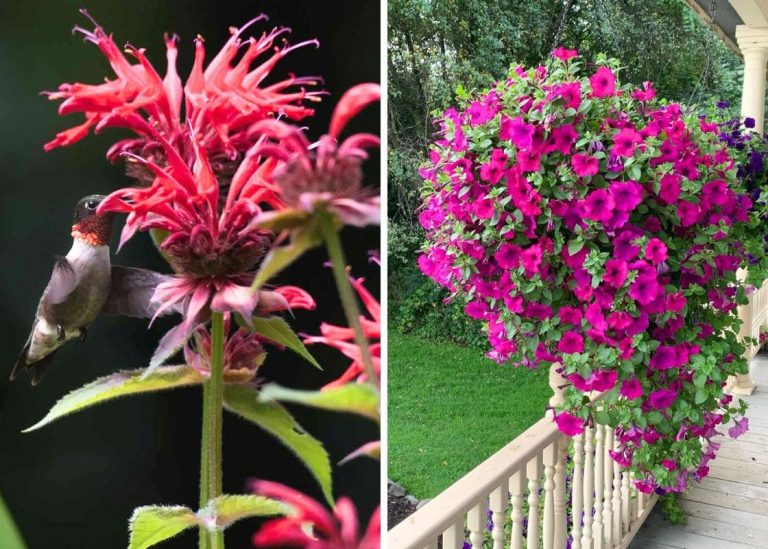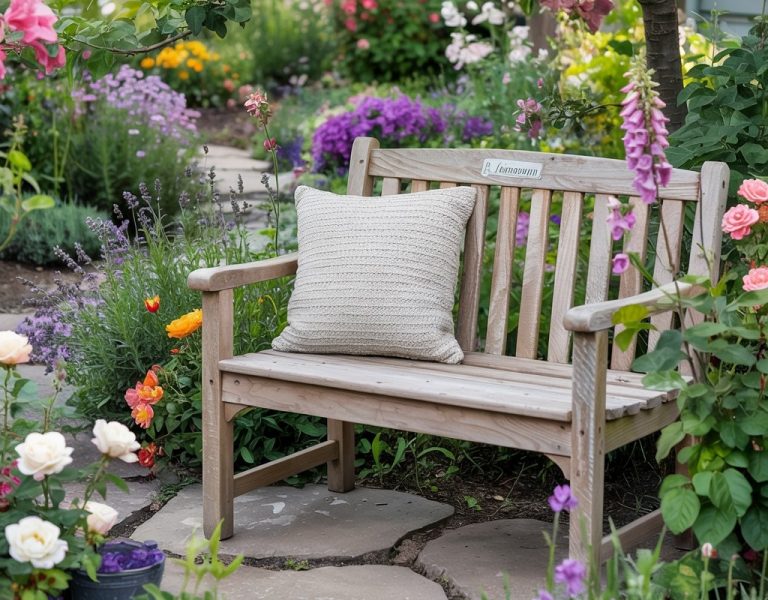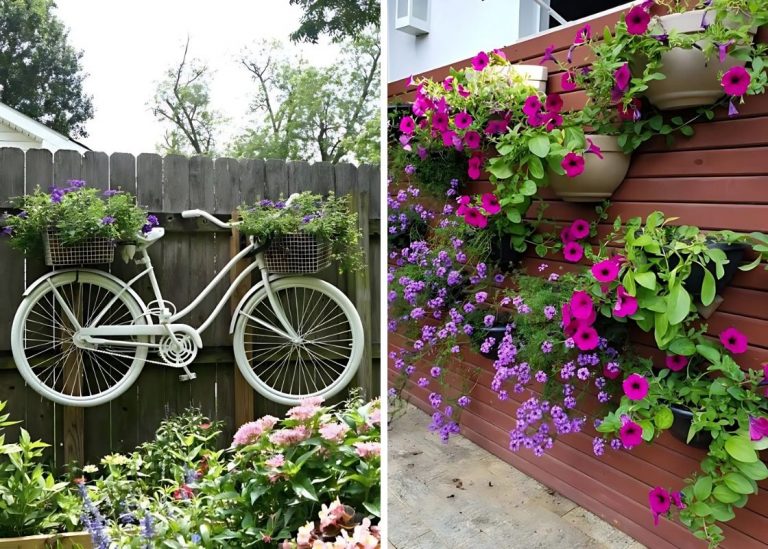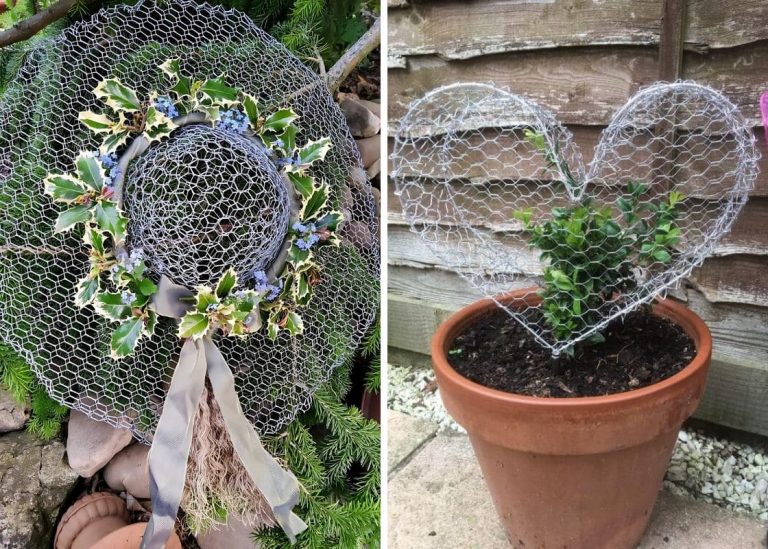How to Make DIY Garlic Spray for Plants In Your Garden
It was one of those golden late-summer mornings when the garden felt like a secret world all its own. The tomatoes were heavy on the vine, sunflowers stood tall like sleepy sentinels, and bees danced lazily from one bloom to the next. But all wasn’t as peaceful as it seemed.
I bent down to admire a row of kale I’d planted weeks earlier—only to find an army of aphids taking over the undersides of the leaves. My heart sank. I didn’t want to use chemicals. My garden, to me, has always been a place of peace and balance, not a battleground for harsh sprays and synthetic solutions.
That night, I remembered something my grandmother used to do—she swore by garlic. I could still picture her kitchen, filled with the smell of crushed cloves and the steam from the stove. She used garlic for everything: cooking, healing, even gardening. So I decided to give it a try.
I crushed a few bulbs, let them steep, and sprayed the potion on my plants. The next morning, the aphids were gone. Just like that. And ever since, garlic spray has been one of my garden’s best-kept secrets. However, I love to share, so I’ll show you how it works, how to make it, and how to use it with love and care.
Why Garlic Spray Works (Like Magic)
Garlic isn’t just for your pasta sauce—it’s a garden warrior. When you crush or chop garlic, it releases allicin, a powerful compound with antibacterial and antifungal strength. This is what helps your plants fight off infections naturally, like a gentle herbal shield.
But that’s not all…
-
The strong smell confuses and repels pests like aphids, spider mites, whiteflies, and even mosquitoes.
-
It doesn’t harm pollinators like bees or butterflies—your garden friends are safe!
-
It’s chemical-free, making it perfect for organic gardening and anyone who cares about what goes into their soil.
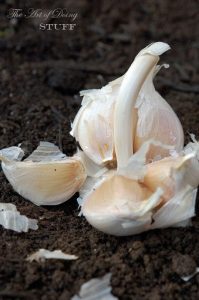
Tip from my garden: I use garlic spray around my herbs and vegetables the most—it’s amazing for keeping them pest-free without worrying about chemical residue on edible plants.
The Benefits of Using Garlic Spray in Your Garden
1. Natural Pest Control
I’ve had seasons where I thought pests would take everything. But once I started using garlic spray regularly, my garden began to feel balanced again.
- Deters pests like: Aphids, whiteflies, spider mites, slugs and snails
-
Keeps foliage clean and unbothered
-
Doesn’t chase away ladybugs or bees (they know better!)
Note: It’s not a miracle in one spray—you’ll need to be consistent. But over time, it builds a peaceful boundary around your garden.
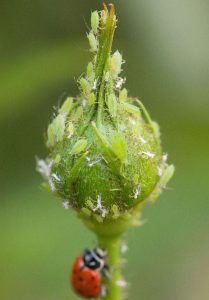
2. Fights Fungal Diseases
I’ll never forget the first time powdery mildew showed up on my squash. I felt betrayed. I thought I was doing everything right—sunlight, air circulation, spacing. But fungus doesn’t care.
Garlic helps by:
-
Creating a natural, antifungal coating on your plant’s surface
-
Disrupting fungal growth before it gets out of hand
My fix: I now spray my zucchini every Sunday morning during humid weeks. Since I started that, not a single outbreak. Garlic became my weekend ritual—like a love letter to my garden.
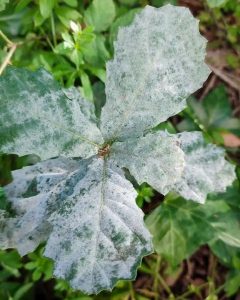
3. It Keeps Mosquitoes Away Without Harsh Chemicals
On summer evenings, I love sitting outside with a book and glass of mint tea. But mosquitoes used to crash the party every time. Now, I spray garlic around my seating area and near the herb beds—and just like that, they vanish. The smell of garlic at dusk, mixed with mint and soil and lavender—it sounds odd, but it feels like home.
-
Use around garden paths, benches, and patio chairs
-
The smell fades for us—but lingers just enough to say “buzz off” to bugs

4. t’s Cheap, Honest, and Always There for You
If you’re looking for a budget-friendly pest control option, garlic spray is unbeatable. With just a few cloves of garlic, water, and some basic kitchen staples, you can make your own spray in minutes.
Compared to store-bought pesticides, which can be expensive and full of chemicals, garlic spray is a cost-effective alternative that delivers impressive results.
Note: I used to spend $15–$30 on pest sprays. Now I spend $1 and ten minutes—and my garden’s never been healthier.
How to Make Garlic Spray for Plants
You’ll Need:
- 2-3 large garlic bulbs
- 4 cups of water
- 1 tablespoon of liquid dish soap (optional)
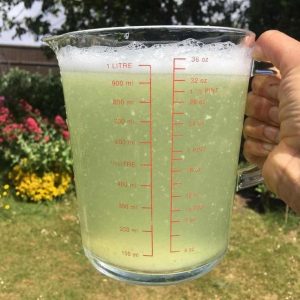
Instructions
- Peel and crush the garlic bulbs. You can use a blender, food processor, or mortar and pestle.
- Add the crushed garlic to 4 cups of water in a bowl. Let it steep for 24 hours to release the allicin.
- Strain the mixture through a fine sieve or cheesecloth into a spray bottle, discarding the solids.
- If desired, add the liquid dish soap and vegetable oil for improved adherence to plant leaves.
- Shake the bottle well before each use.
Tip: Label the bottle—trust me. I once accidentally used garlic spray on my hair instead of my homemade rosemary tonic. It was… pungent.
How to Use Garlic Spray in Your Garden
With Love, Patience, and a Good Shake
-
Spray early morning or late evening—never during peak sun (leaves might burn).
-
Cover both top and bottom of leaves.
-
Reapply every 7–10 days, or after rain.
-
Always test a small spot first, especially on delicate plants.
I once sprayed an entire basil plant without testing. It curled up in protest. Lesson learned—now I always do a spot check.
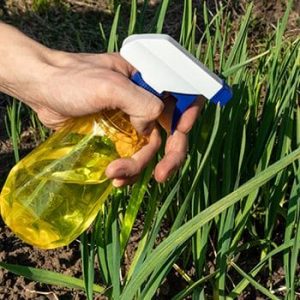
A Few Cautions and Care Notes
Garlic’s smell fades—but it’s strong at first. Don’t use it on indoor plants unless you like living in a garlic bakery.
Keep out of reach of pets. Garlic can be irritating if they lick it.
Store leftovers in the fridge for up to a week, and compost the solids.
inal Thoughts: Grow with Heart, Not Fear
There’s something so pure about protecting your plants with what you already have in your kitchen. Something ancestral. Grounded. Real.
Gardening isn’t about perfection. It’s about love, effort, and showing up every day—even with garlic on your hands and dirt under your nails. Garlic spray has saved my garden time and time again—not just from pests, but from hopelessness. From that voice that says, “Maybe I can’t do this.”
You can do this. And you don’t have to buy fancy bottles or fight your garden’s battles alone.
So go ahead. Make your first batch. Spray it with a smile. And remember: in this garden, we grow things naturally, lovingly, and always together.

